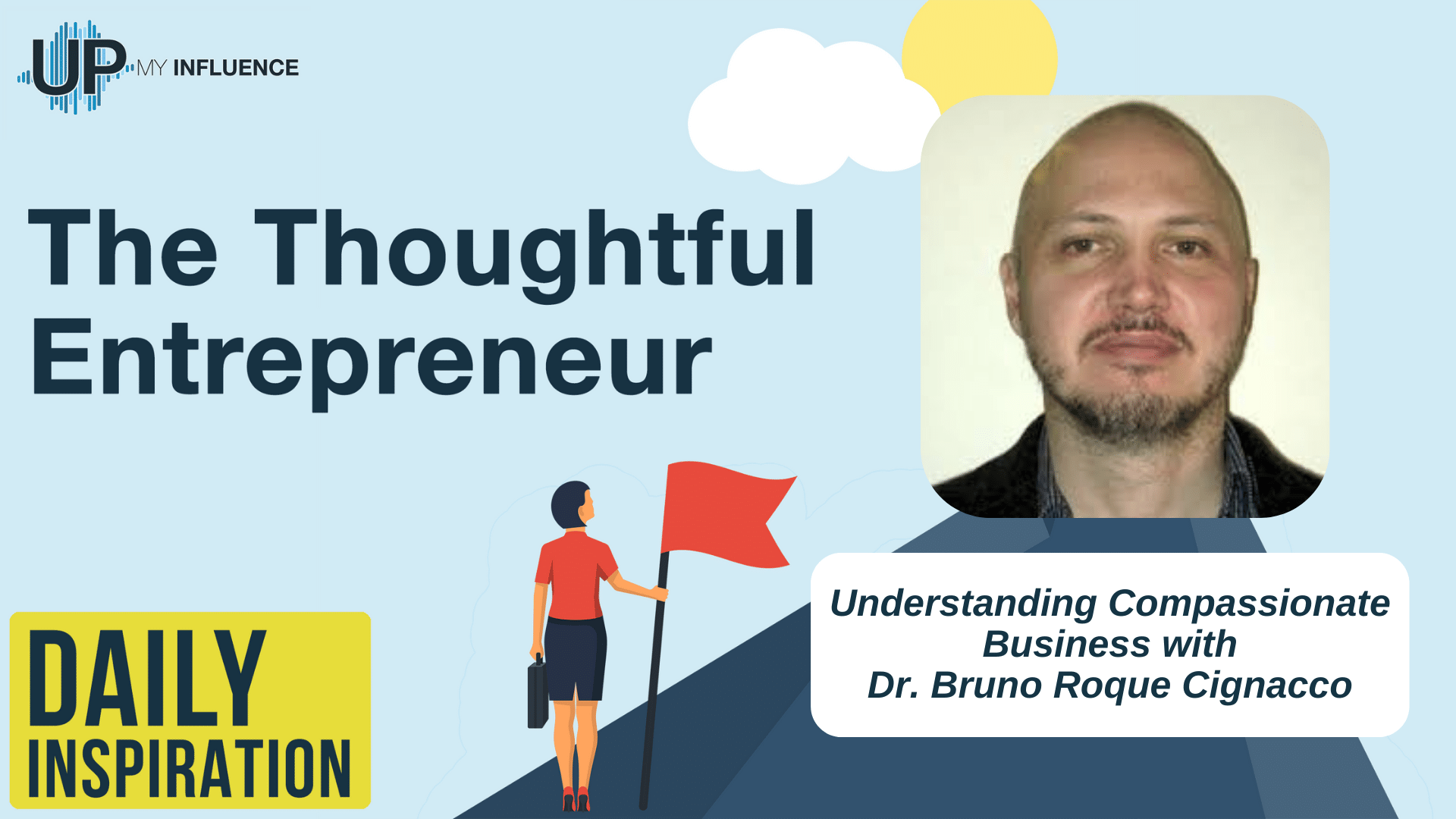THE THOUGHTFUL ENTREPRENEUR PODCAST
In this episode of the Thoughtful Entrepreneur, your host Josh Elledge speaks to the Training Consultant of Human Oriented Enterprise, Bruno Cignacco.

Dr. Bruno Roque Cignacco emphasized the transformative power of compassion in the workplace. He shared how a compassionate work environment increases employee satisfaction, loyalty, and productivity. When team members feel valued and supported, they are likelier to contribute their best work and collaborate effectively.
A particularly striking point Dr. Cignacco made was about the detrimental effects of fear in the workplace. Fear-based management can stifle creativity, hinder communication, and ultimately damage the company's culture and success.
In contrast, fostering psychological safety allows employees to express their ideas and concerns without fearing negative repercussions, leading to a more innovative and resilient organization.
Key Points from the Episode:
- Importance of compassionate business practices
- Impact on the workplace and the world
- Building strong, long-lasting relationships with stakeholders
- Nurturing relationships through generosity, gratitude, and support
- Negative impact of fear in the workplace
- Creating a work environment with psychological safety
About Bruno Cignacco:
Dr. Bruno Roque Cignacco is a seasoned consultant and international business leader focusing on human-oriented training and compassionate corporate practices. As the founder of a consultancy organization, he is dedicated to assisting companies in achieving both profitability and positive societal impact.
With extensive experience in international business, Dr. Cignacco facilitates accessible international trade transactions for diverse companies. His expertise spans various subjects, including social and relationship marketing, negotiation, customer service, and communication skills, which he imparts to hundreds of companies globally.
As an accomplished international speaker and best-selling author translated into multiple languages, Dr. Cignacco's books have enlightened a global readership.
With nearly two decades as a university lecturer and a Senior Fellow at the Higher Education Academy, he shares his knowledge and researches social business and marketing. His impactful sessions have influenced thousands of students, entrepreneurs, and executives worldwide.
About Human Oriented Enterprise:
The Human Oriented Enterprise distinguishes itself through a profound commitment to core values such as compassion, kindness, and transparency. With a global footprint and extensive experience advising companies and training individuals worldwide, their unique services prioritize and enrich the human aspect of work and business activities.
Founded by Dr Bruno Roque Cignacco, a seasoned professional with over two decades of supporting diverse companies globally, he brings a wealth of experience from teaching at universities, training businesses, and authoring acclaimed business books in multiple languages.
As a senior fellow of the Higher Education Academy (UK) and a correspondent Association of Events Managers member, Dr. Cignacco's expertise extends to international trade, marketing, and personal development.
His impactful talks, seminars, and conferences across various countries underscore his mastery as a Master Life Coach and NLP practitioner, further enhancing the holistic approach of the Human Oriented Enterprise.
Tweetable Moments:
11:28 – “The first question for a manager or a business leader should be: Is there any fear in this workplace?”
Links Mentioned in this Episode:
Want to learn more? Check out Human Oriented Enterprise website at
https://humanorientedenterprise.com/
Check out Human Oriented Enterprise on LinkedIn at
https://www.linkedin.com/company/human-oriented-enterprise/
Check out Bruno Cignacco on LinkedIn at
https://www.linkedin.com/in/dr-bruno-roque-cignacco-sfhea-0609317/
More from UpMyInfluence:
We are actively booking guests for our The Thoughtful Entrepreneur. Schedule HERE.
Are you a 6-figure consultant? I’ve got high-level intros for you. Learn more here.
What is your #1 Lead Generation BLOCKER? Take my free quiz here.
Want to learn more about all the podcasts managed by UpMyInfluence? Opt in here.

